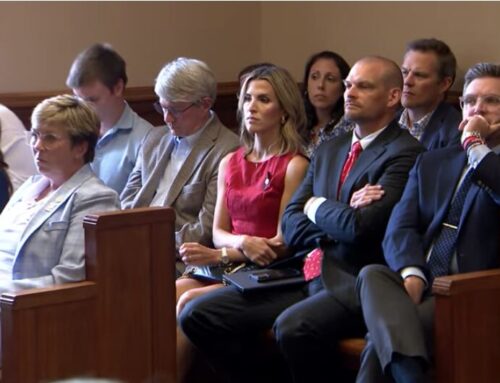Citizens should have access to crime records
Last week in a House subcommittee a police chief expressed alarm that anyone could come in to his department and get access to crime records after a case is closed.
He was testifying in support of a bill that would make victims of sexual assault crimes anonymous after the case is over. The proposal would exempt their names and any other potentially identifying information from the Tennessee’s Open Records Act.
I applaud that police chief for his stated adherence to Tennessee’s laws, which give any Tennessee citizen access to local law enforcement’s investigations into a crime after the case is over or prosecution is ended.
But unlike the chief, I’m not alarmed that citizens should have such rights. They need it to ensure law enforcement is accountable.
I’m also not alarmed that citizens should have timely access to basic information about potential crime that has been reported by the public in their communities. They need it to feel safe.
Any citizen of Tennessee should be able to go into his police station, or any police station or sheriff’s department in this state, and view an incident report, also called an offense report, that contains the initial documentation by the police of the who, what, when, where – a narrative summary of the alleged crime.
But it was not that long ago that the Tennessee Coalition for Open Government did a statewide citizen audit of all police and sheriff departments and found that 35 percent of local police agencies and 45 percent of sheriffs’ offices denied requests for basic crime reports, such as for burglary, claiming they were confidential.
One citizen got detained for even asking.
A sheriff said at the time “For someone to walk in off the street and to say, ‘I want all the burglaries for the last month,’ I’m not for that…There needs to be a valid request.”
Perhaps times have changed. But that’s not what I hear from citizens and journalists across the state.
Unbeknownst to most citizens, there is a heated debate going on in the background about what law enforcement in Tennessee should be required to disclose to the public when a crime occurs.
The reality is that many police departments do not believe they must release offense reports – that initial taking down of information of a reported crime – and claim that this information should be confidential because they are investigating the said crime.
Under this reasoning, any report of crime made to police by the public can be withheld from the public at law enforcement’s choosing. And, in fact, it sometimes is, effectively keeping the public from knowing what crime is being reported in their community.
In our government, we give citizens a right to information about government operations for a reason. It’s an important check on government power. It’s also important to the functioning of our government and our trust in it, and is critical to knowledgeable participation of citizens.
The movement to chip away at citizens’ rights to information about what their government is doing comes with a price. Sometimes it’s a price we pay without even realizing it.
Deborah Fisher is executive director of the Tennessee Coalition for Open Government, a nonprofit alliance of citizens, media and good government groups that researches, tracks and provides education on open government issues across the state.




